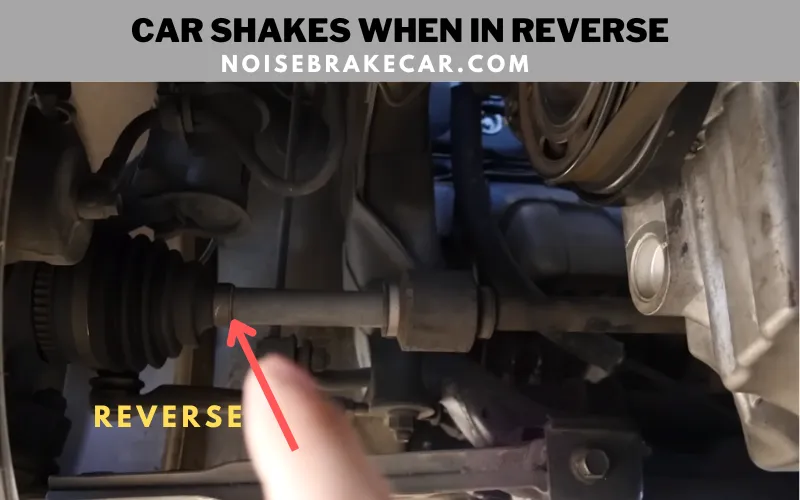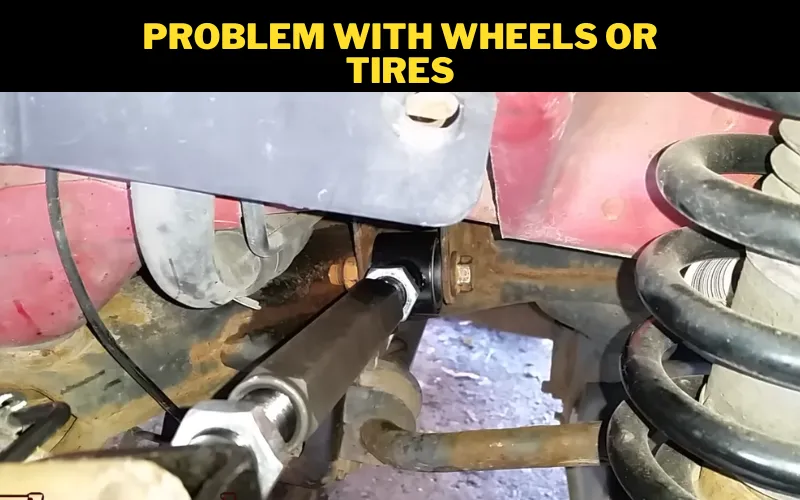Driving a car that vibrates or shakes when reversing can be a frustrating experience and could indicate a problem with the vehicle’s suspension or transmission. Vibration in your car when reversing can also be caused by issues such as engine problems worn brake pads, uneven tire wear and other problem.
In this article, we will discuss common causes of vehicle vibration when reversing.
Most Common Causes Car Shakes When in Reverse
If your car shakes when reversing, it could be a sign of a problem. There can be several reasons why your car makes vibrating noises when reversing.
1) Gearbox Carrier Worn or damaged
The transmission carrier is a component that supports the weight of the transmission and absorbs vibration. Over time, the roof rack can become worn or damaged, which can cause vibration when reversing.

2) Transmission system or different Defective
The gearbox and differential are responsible for transmitting power from the engine to the wheels. If problem with these components. You may feel vibration when reversing.
More Information: Why does My Car Squeaking When Turning? + Reasons
3) Engine Problems
Worn or damaged engine mounts can cause excessive engine movement and therefore vibrations when shifting gears. When engaging reverse gear, the movement of the engine can cause vibration in the vehicle. Inspect the engine mounts for determine of wear, such as cracks or sagging.
4) Problem with wheels or tires
If the vehicle has worn or damaged tires or the wheels are unbalanced, vibration may occur when reversing. This can be especially noticeable if you have a front-wheel drive car as vibration can be felt in the steering wheel.
5) Exhaust Loose or Damaged
A loose or damaged exhaust system, including mufflers or exhaust pipes, can cause vibration. Determine the exhaust system and tighten or replace any loose or damaged components.

6) Traction System or Differential defective
The gearbox and differential are responsible for transmitting power from the engine to the wheels. If there is a problem with these components, you may feel vibrations when reversing.
7) Suspension Problems
Worn or damaged suspension components such as struts, shock absorbers or bushing can cause vibration. Determine the suspension system for signs of damage or wear.
8) Observe When the Shaking occurs
Play close attention if the car starts shaking. Does this only happen when you put the car in reverse for the first time you start your vehicle, it could be a sign of “morning sickness” a problem with some transmission that is more noticeable when the vehicle is cold.
9) Constant velocity joints
Constant velocity joints are transmission components that help transfer power to the wheels by adapting to changes in angle. Worn or damaged CV joints can cause vibration and chatter, especially during maneuvers such as reversing.
Inspect the constant velocity joints for damage and consider replacing them if necessary.
10) Brake Problems
Warped brakes disc or uneven brake pad wear can cause vibration when braking, which may be more noticeable when reversing. Inspect brakes and replace worn components.
Can I drive with a Bad spark plug?
There are definitely risks. It depends on what you mean by a (bad) spark plug.
Spark plug electrodes erode. It just happens over time. Although modern engines with rare metal electrodes can easily last overs 100,000 miles. If the electrodes erode too much and the spark gap expands misfires can occur.
Cracked spark plug tip or ceramic in cylinder. This can cause immediate damage to the piston/cylinder/head. Even if the components exit the exhaust valve, they can get stuck in the catalyst matrix and cause damage.